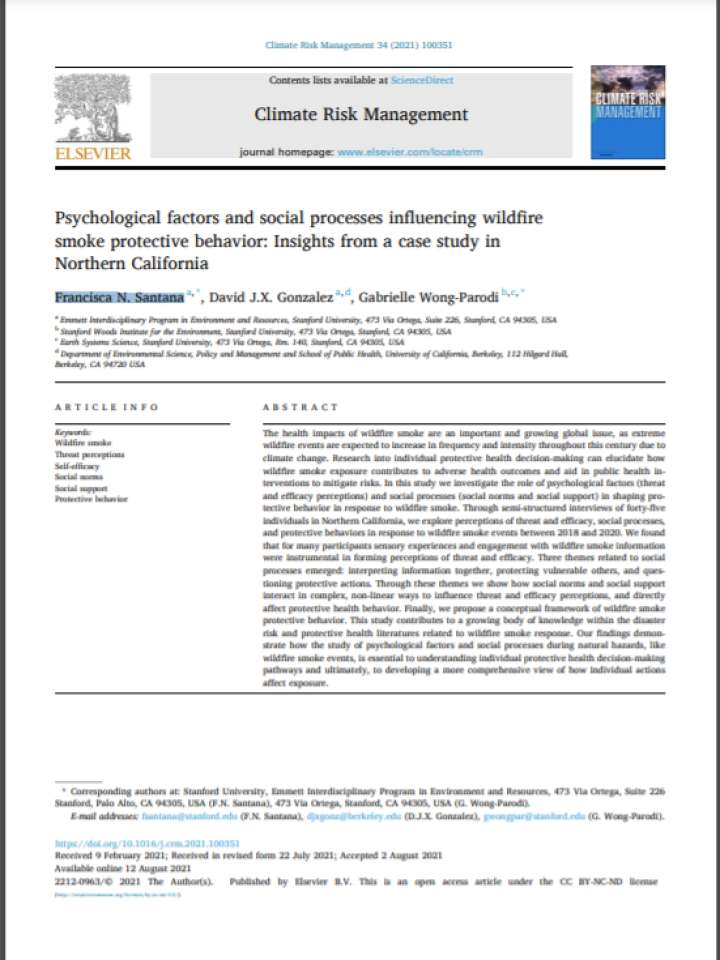Psychological factors and social processes influencing wildfire smoke protective behavior: Insights from a case study in Northern California
In this study the authors investigate the role of psychological factors (threat and efficacy perceptions) and social processes (social norms and social support) in shaping protective behavior in response to wildfire smoke. The health impacts of wildfire smoke are an important and growing global issue, as extreme wildfire events are expected to increase in frequency and intensity throughout this century due to climate change. Research into individual protective health decision-making can elucidate how wildfire smoke exposure contributes to adverse health outcomes and aid in public health interventions to mitigate risks.
The authors found that for many participants sensory experiences and engagement with wildfire smoke information were instrumental in forming perceptions of threat and efficacy. Three themes related to social processes emerged: interpreting information together, protecting vulnerable others, and questioning protective actions. Through these themes the authors show how social norms and social support interact in complex, non-linear ways to influence threat and efficacy perceptions, and directly affect protective health behavior. Finally, the authors propose a conceptual framework of wildfire smoke protective behavior. This study contributes to a growing body of knowledge within the disaster risk and protective health literatures related to wildfire smoke response. The findings demonstrate how the study of psychological factors and social processes during natural hazards, like wildfire smoke events, is essential to understanding individual protective health decision-making pathways and ultimately, to developing a more comprehensive view of how individual actions affect exposure.
Explore further
